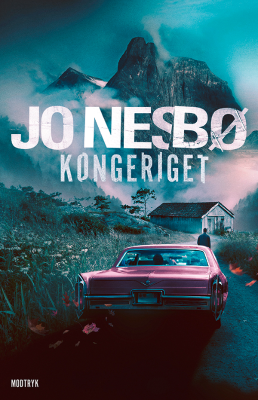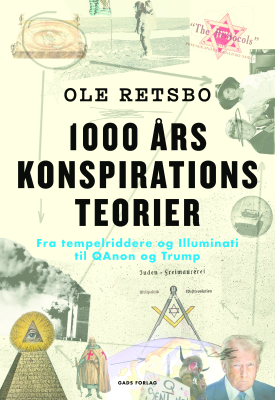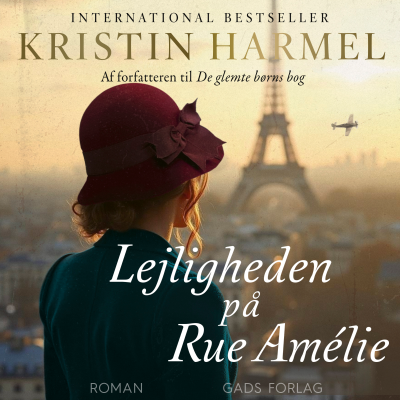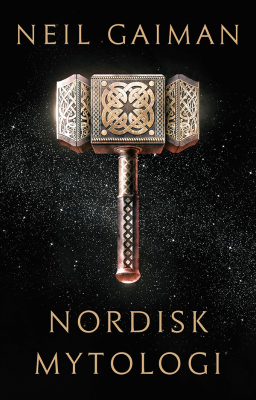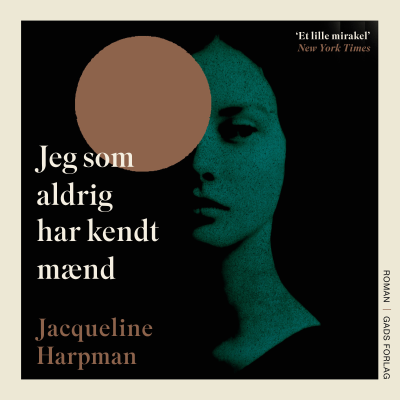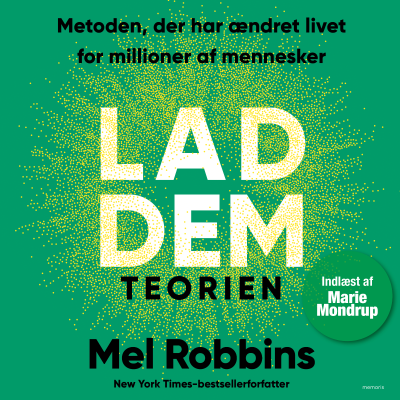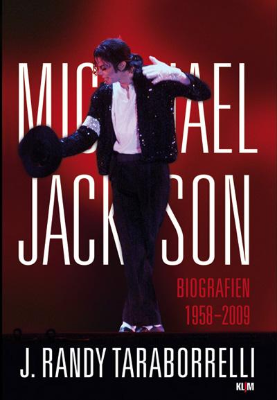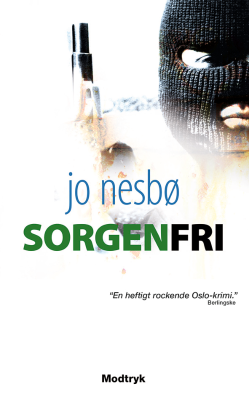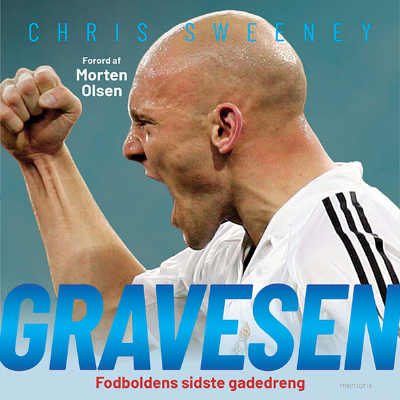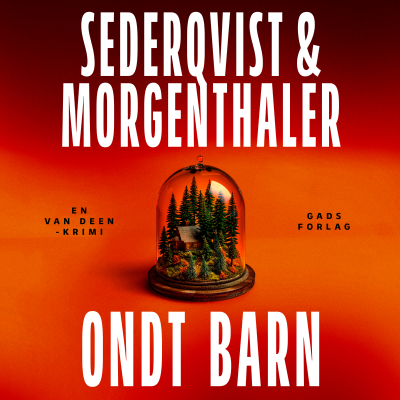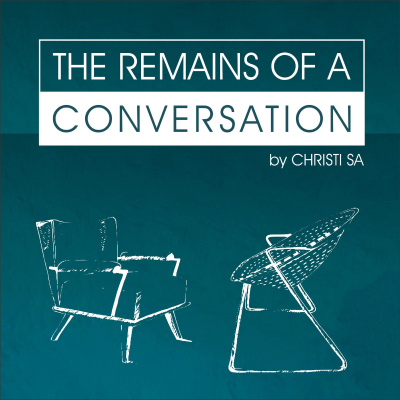
The remains of a conversation
engelsk
Personlige fortællinger & samtaler
Begrænset tilbud
2 måneder kun 19 kr.
Derefter 99 kr. / månedOpsig når som helst.
- 20 lydbogstimer pr. måned
- Podcasts kun på Podimo
- Gratis podcasts
Læs mere The remains of a conversation
What do South African artists tell us about us? Via a conversation based on a shared experience with South African artists, I want to discover a truth about the society we live in. What do artists do or think? And what does that say about us? That's what I'd like to explore with this series.
Alle episoder
4 episoder04 Natalie De Morney | Where a wish leads to a story
Curls are the treasure. Right in the beginning of our conversation Natalie de Morney shares with me she has the wish to become a death doula. I am reminded of a story I wrote many years ago about a fictional society that has specific customs to deal with illness and death. This story is called The boat. I share it with you in this episode. Natalies' wish is to become a death doula, a death doula helps someone die. In my story I express the wish that a society exists where the dying person is surrounded by community. These two wishes are I believe different expressions of a need in our time. Natalie chose the book The Alchemist by Paulo Coelho as the shared experience that we could base our conversation on. We talk about themes that are in the book, like destiny, treasure, purpose of life. About black stones and crystals. Natalie shares with me her life's story. It was hard for her to find her purpose in life. As a little girl, who looked very different as her family, she could feel the presence of persons who had died, she could sense the pain of people who were necklaced during apartheid. She didn't find guidance to these experience and she first shut that side of her down. She became first a tomboy and later a civil engineer. Yet, as an adult her body became sick and she became depressed. She reached out to healers who helped her to get in touch with her deceased grandfather via a channel. He tells Natalie she is supposed to study art. Natalie experienced a world of visions and dreams, they give her guidance. She discovered her lineage is Scottish, Irish, Dutch, Indian, San and Nguni. All these ancestors are in her. She embraces this. Natalie loves moving her hands with clay, she first makes pipes and screws, but now she makes curls, they re-connect her to a past that was first hidden. All is one. Natalie de Morney is represented by Berman Contemporary [https://bermancontemporary.com/natalie-de-morney/] · The full text of this recording is on my website. Including the portrait. [https://christisa.com/home/natalie-de-morney/] · Follow Natalie on Instagram [https://www.instagram.com/natalie_de_morney/] · Visit Christi Sa's website [https://christisa.com/] · Christi Sa on Instagram [https://www.instagram.com/sa.christi] · Connect with Christi on LinkedIn [https://www.linkedin.com/in/christi-sa-46b03111/]
03 Athenkosi Kwinana | A life in South Africa with Albinism
Imaginings as a replacement for pain. Athenkosi Kwinana is an African woman from the Eastern Cape who lives with Albinism. She makes large detailed self portraits. She invited me to listen to an ASMR video. I had never heard of this, so I was curious to explore. However my first attempt failed as I am hard of hearing and I couldn't understand anything the women from Kenya in the video was telling. I looked elsewhere, to words and images, to try to find explanations about what was going on. I read ASMR is about the sound effect in the body of hearing a whisper. This sensation I could explore and I tried again and I experienced pleasant waves of feelings in my body, inside my spine. This effect lasted till the moment I met Athenkosi for our conversation. On my way to the studio, our conversation place, I encounter yellow tape and a police car. I have to make a detour. I think about yellow tape and the possibility of a murdered body. I think of Athenkosi who must live with a constant fear of violent attacks on her own white body. In South Africa an African person with a white skin still encounters beliefs that her body can be an object to be 'acquired' for superstitious beliefs. The stories she told settled in my mind and become images. The remains of our conversation is the story I heard her tell me. The story about a girl born in the Eastern Cape in Mthatha, the district where Nelson Mandela also grew up in. She has a white skin and yellow hair. Her culture is Xhosa. Detailed storytelling is a defining part of her culture. She has bad eye sight, she starts to draw, she does imagining games with her mother. She learns about Salvador Dali in high school. She is inspired by Frantz Fanon, Diane Victor, Zanele Muholi. She travels to Cuba, Johannesburg. She is a visual artist and the making of art is healing for her. She wants to reimagine how the albinic body is seen in South Africa. Follow Athenkosi Kwinana on Instagram [https://www.instagram.com/kwinanaaaa/] · Athenkosi Kwinana is represented by Berman Contemporary [https://bermancontemporary.com/athenkosi-kwinana/] · The text of this recording including portrait on my website [https://christisa.com/home/athenkosi-kwinana/] · Visit Christi Sa's website [https://christisa.com/] · Christi Sa on Instagram [https://www.instagram.com/sa.christi] · Connect with Christi on LinkedIn [https://www.linkedin.com/in/christi-sa-46b03111/]
02 DuduBloom More | The weight of elephants
The shared experience of watching the movie Where the crawdads sing. In this episode I share with you what happened during and after my conversation with South African artists DuduBloom More. We talked about the movie Where the crawdads sing. DuduBloom More makes art that consist often of circles in soft materials, she uses strong colours and I see strong defined patterns in her work. I seem to see more strong patterns in African art after I've read Indaba my children, by Credo Mutwa. We talk about working from home and being without a community often. I think about Heidegger who had a mountain cabin in the woods and I remember Virginia Woolfs essay A room of one own and I think should we women also create a life of our own outside of our home? I share with Dudu what remained with me after our conversation. I tell her I experienced a movement in my body that felt like a rupture in the air when she shared with me she wanted to talk about this movie with me 'because she killed him".. I tell Dudu I heard her say circles are important for her, and names are very, very important. At the end of our conversation Dudu expresses a last thought: that it is the neglect of Kya's family that is the actual abuse. And I think about South Africa where so much of that neglect is unfortunately still present in the community. DuduBloom More is represented by Gallery Berman Contemporary. [https://bermancontemporary.com/dudubloom-more/] · Read this article on my blog [https://christisa.com/home/dudubloom-more/] · DuduBloom on Instagram [https://www.instagram.com/dudubloom/] · Visit Christi Sa's website [https://christisa.com/] · Christi Sa on Instagram [https://www.instagram.com/sa.christi] · Connect with Christi on LinkedIn [https://www.linkedin.com/in/christi-sa-46b03111/]
01 Odette Graskie | The beginning of a beginning
What I am left with after my conversation with artist Odette Graskie. I believe that artist make something out of Nothing. The German philosopher Heidegger explains in his essay 'The Origin of the Work of Art' that he believes we can understand our society when we look at the work of artists. I wonder what I can discover about our society if I have a conversation based on shared experiences with South African artist Odette Graskie. We had a conversation about two poetry books: "New names for lost things" by Pakistani poet and visual artist Noor Unnahar and "Let the world have you" by American poet Mikko Harvey". We also talked about the shared experience of a visit to the Jack Ginsburg centre for Book Arts at Wits University in Johannesburg. Our conversation took place in my studio room in Victoria Yards in Johannesburg. I am fascinated not by what is lost in translation, but by what remains of a conversation. For me in order to be able to discover what remains I need to put time between the actual conversation and the writing of the text. This recording therefore, is not a literal transcript of our conversation, but the recording of a text written weeks after our actual conversation. What remained with me for example of the conversation with Odette Graskie were: a shared regret about the state of libraries in Johannesburg, new dream libraries, blueberries, rabbits, ribbons on boxes and owls. Odette Graskie on Instagram [https://www.instagram.com/ohdette/] · Read this interview on my blog [https://christisa.com/home/odette-graskie/] · Learn more about Odette on the Berman Contemporary Gallery website [https://bermancontemporary.com/odette-graskie/] · Visit Christi Sa's website [https://christisa.com/] · Christi Sa on Instagram [https://www.instagram.com/sa.christi] · Connect with Christi on LinkedIn [https://www.linkedin.com/in/christi-sa-46b03111/]
Vælg dit abonnement
Begrænset tilbud
Premium
20 timers lydbøger
Podcasts kun på Podimo
Gratis podcasts
Opsig når som helst
2 måneder kun 19 kr.
Derefter 99 kr. / måned
Premium Plus
100 timers lydbøger
Podcasts kun på Podimo
Gratis podcasts
Opsig når som helst
Prøv gratis i 7 dage
Derefter 129 kr. / måned
2 måneder kun 19 kr. Derefter 99 kr. / måned. Opsig når som helst.










